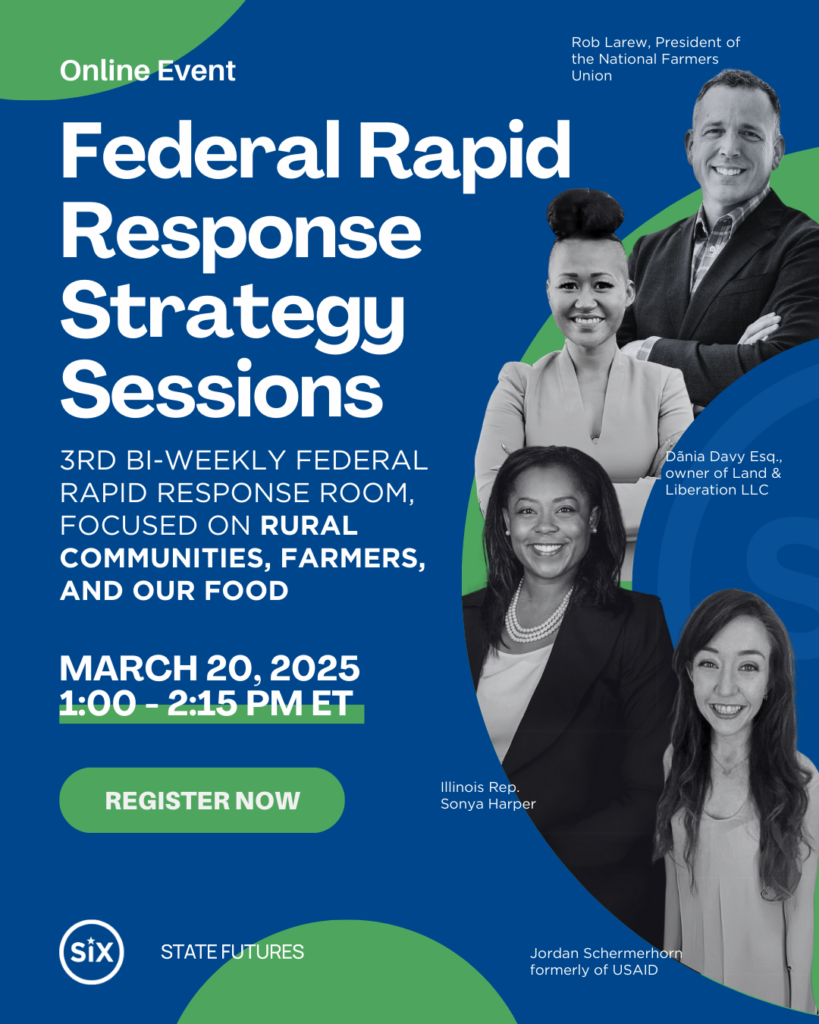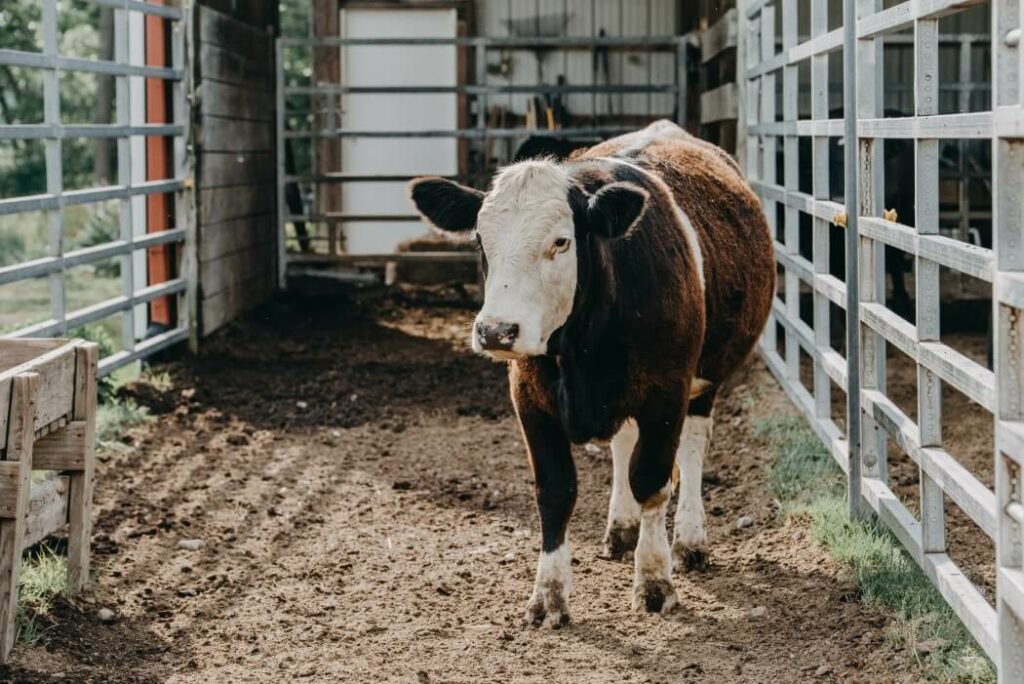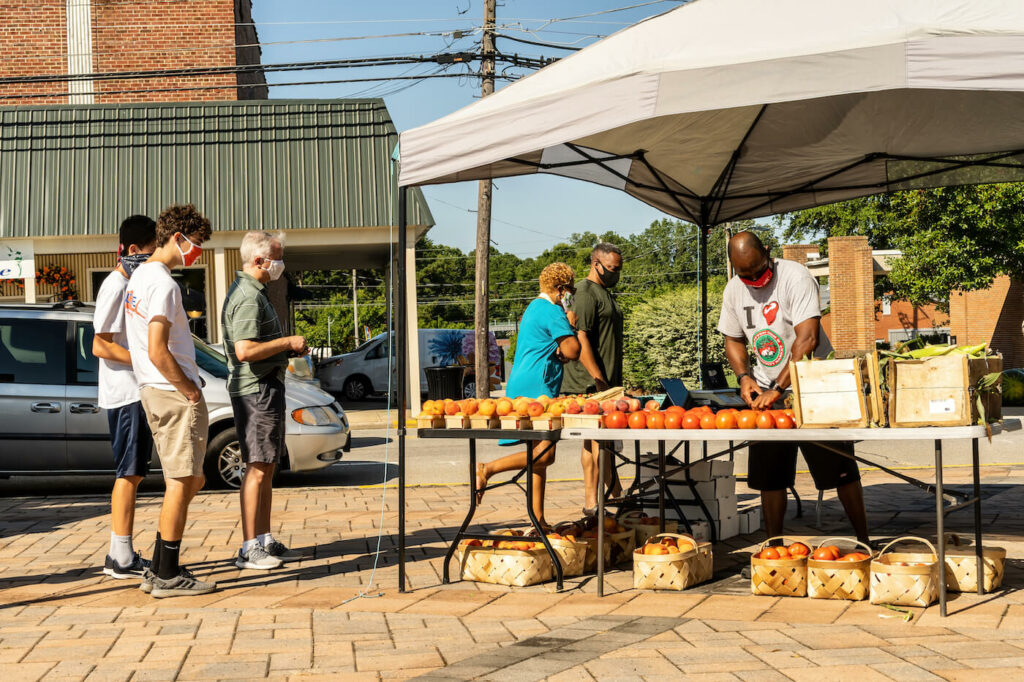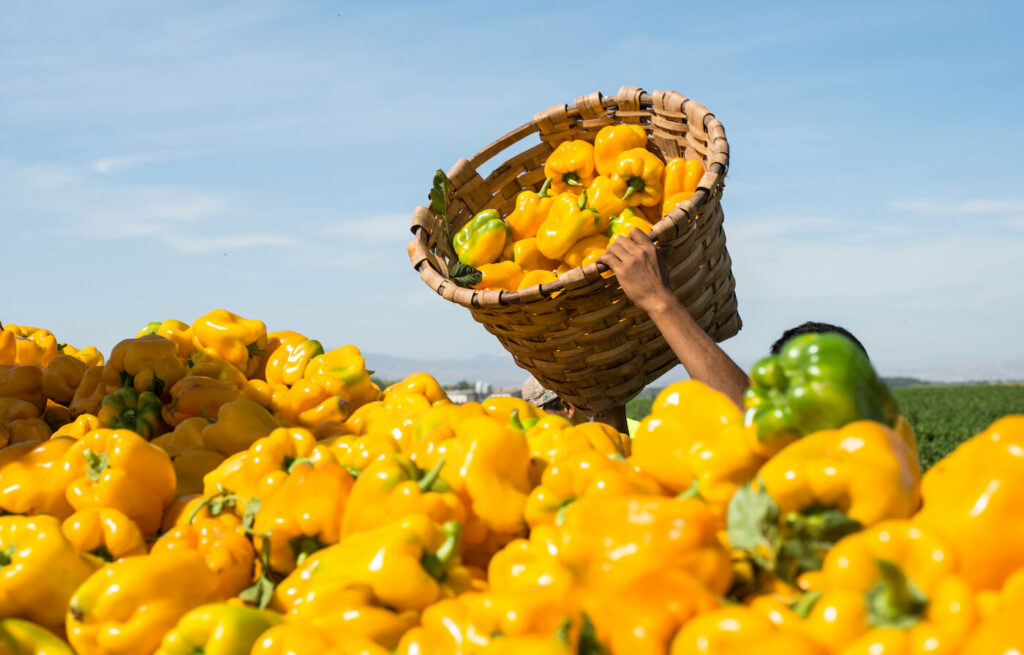State Power to Protect our Farmers, Food, and Rural Communities.
State Power to Protect our Farmers, Food, and Rural Communities.
By: Kendra Kimbirauskas
The agricultural community has long been the backbone of our economy, but recent Trump administration policy decisions have placed unprecedented strain on farmers and rural communities across the country. In light of these actions—particularly the use of executive orders and the systematic dismantling of federal agencies—state legislators must be well-informed about the direct and indirect impacts on their states. These actions often create policy gaps, regulatory challenges, and funding shifts that significantly affect state governance.
The unprecedented decisions have had a significant impact on farmers and rural communities. Navigating these changes has been challenging, from the instability caused by tariffs to the USDA's cancellation of $1 billion in funding for local food purchasing programs that support schools and food banks. Additionally, funding freezes and plans to eliminate the EPA’s environmental justice offices have further compounded these difficulties. These decisions will have direct, serious, and long-lasting consequences for working families, with communities of color, rural populations, farmers, and farmworkers bearing the heaviest burden. However, this moment also presents an opportunity for state legislators to step up and take action in response to these challenges.
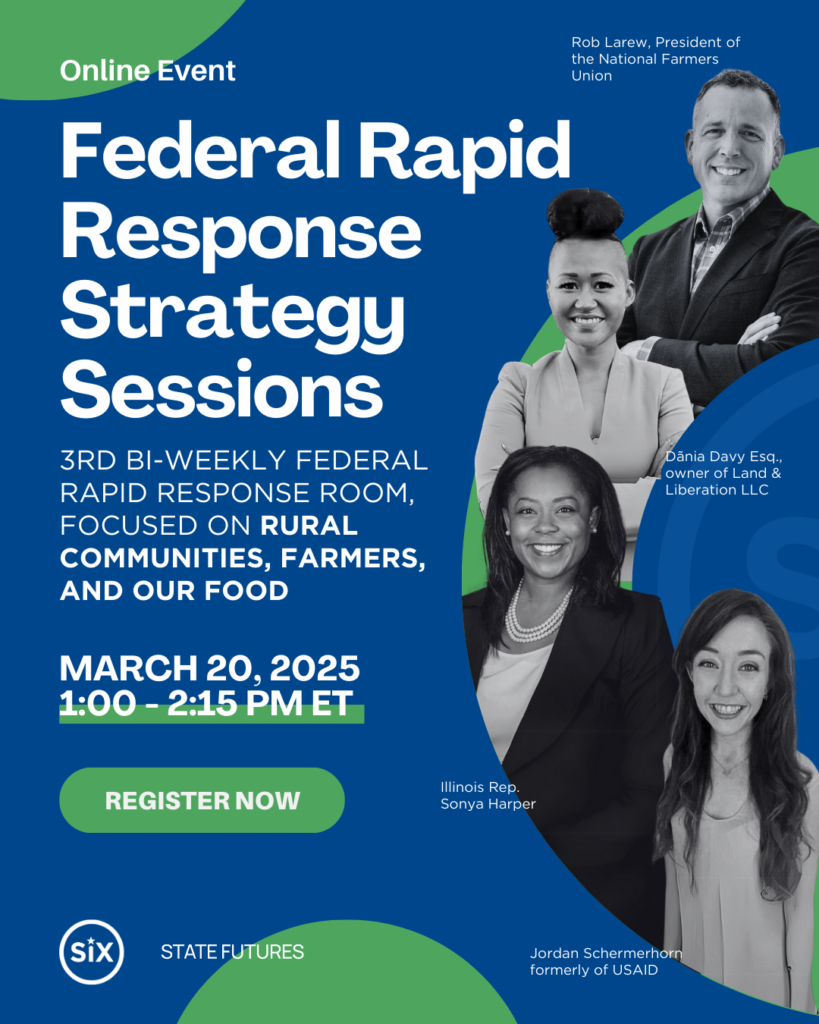
The Growing Uncertainty in Rural Communities
The federal funding freeze has left farmers and rural people with a wave of uncertainty across the rural landscape. USDA local offices closing, employees being laid off, and critical conservation programs frozen have left farmers without the support they rely on. Contracts that were once secured are now uncertain, causing financial strain and distress. Many fear that these cuts will accelerate trends of farm consolidation, pushing out small and mid-sized family farms and favoring large agribusinesses.
The ripple effects of these policy changes extend far beyond individual farms. Community banks, rural businesses, and local economies are all feeling the pressure. Tariff threats and shifting market conditions have only exacerbated the situation, creating a "whiplash effect" that makes long-term planning nearly impossible for many farmers.
The Threat to Equity in Agriculture
There are deeply concerning effects of recent executive orders that have targeted diversity, equity, and inclusion (DEI) initiatives within the USDA. These rollbacks are not just policy shifts but direct attacks on 40 years of the civil rights movement’s progress in agriculture. There have been harmful dog whistles and lies about these advances coming at the expense of white farmers. This false narrative is intended to undermine civil rights and interracial solidarity between family farm organizations, like the National Farmers Union, with predominantly white members, and those organizations working directly in communities with farmers of color. The result of these actions has been chilling and profound for community-based organizations. Many serve the most vulnerable farmers, who are now facing threats, seeing grant funds being delayed or withheld, and are being silenced by the fear of retaliation.
Additionally, the elimination of the Local Food Purchasing Program is resulting in funds being withheld that would have otherwise gone to food programs for purchasing local healthy foods directly from local farmers. This action is causing harm to the most vulnerable farmers and the communities that they serve.
Furthermore, these funding cuts and regulatory rollbacks are having a significant mental health impact on farmers. With Medicaid rollbacks occurring simultaneously, farmers are left without critical safety nets, compounding their daily stress and uncertainty.
Dismantling USAID’s impact on farmers and rural communities
While many view USAID as an international agency, the reality is that 83% of its funding flows through U.S. nonprofits, farms, and businesses, and is deeply integrated into the American economy. Less known is that USAID directed millions of dollars into university research and innovation labs, which are critical for farmers. Programs supporting food assistance and university research have been severely affected by the Trump administration eliminating the agency, and we can expect farmers and rural communities to suffer as a result.
While the future of the agency hangs with the courts, it is currently not operating on a day-to-day basis, which has led to layoffs and disruptions in critical food supply chains globally while impacting farmers here at home.
Representative Sonya Harper (IL) is Fighting Back
In mid-March, Representative Sonya Harper, who chairs the House Agriculture & Natural Resources Committee, held a hearing to uplift the stories of farmers who were being harmed by the Trump administration’s funding freeze. With a forum to lift up the voices of those most impacted, advocates were able to quickly mobilize their members to share stories. This hearing garnered considerable media attention and highlighted the severe repercussions of the USDA’s decision to remove funding for critical programs such as the Illinois Eats Program and the Resilient Food Systems Program. These cuts, coupled with mass layoffs at the USDA and looming threats of tariffs, have created economic uncertainty and disruption for many farmers across the state. Additionally, the closure of key research institutions like the Peoria Ag Lab and the termination of federal agreements, such as those funding the Soybean Innovation Lab, have only added to the instability.
Rep. Harper’s hearing underscored the real-world impacts of these decisions—farmers struggling to stay afloat, food banks unable to provide fresh produce, and conservation programs left in limbo.
Actions Legislators can take
Regardless of whether urban or rural, state legislators have an opportunity to use their platform to raise awareness of how Trump administration policies and actions are impacting farmers and rural communities while directly threatening the food security of so many Americans. Immediate action legislators can take:
- Host a hearing: If you are a legislator in a position to request that your state’s equivalent of an agriculture committee hold an information hearing on how farmers feel about Trump administration policies, this can be a powerful forum to lift up the voices of those directly harmed. If you are unable to get an official hearing through your state’s agriculture committee, host an unofficial hearing at a local business or a public library and work with your local food and farming community to invite farmers and the media.
- Introduce a resolution: Use your power in the legislature to call on the Trump administration to reinstate the funding to support farmers, food for schools, and reinstate USAID as a way to support farmers and rural communities in your state.
- Write an Op-ed: Use your voice to tell the stories of the farmers, farm workers, universities, or rural communities that are impacted by the Trump administration policies. Continue to make visible the consequences of federal action at a local level.
- Advocate for state-level policies: Continue to be a champion for state-level policies that support farmers and build resilient food systems. Stay in relationships and connected with community partners (outside of the corporate ag lobby), and continue to advocate for organizations working to support farmers of color in your state. Collaborate with tax advocates and allied Ways & Means legislators to identify new forms of sustainable revenue in your state.
Relevant Resources:
If you have farmer constituents experiencing stress, here are some resources for them. (Note this is currently housed on a USDA site. It would be a good idea to download and file this document in the event it disappears)
Use these graphics to lift up the impacts that the elimination of USAID has caused to your state. Use these graphics to tell the story of how your state’s universities will be affected by losing resources from the program.
Keep this resource handy from our partner Dãnia Davy, who has been holding office hours about the funding freeze called What the Funding?!?!
Keep up to date on recent Trump administration actions and the impact to food and farming by bookmarking Civil Eats’ Policy Tracker.
The SiX Ag team has been following some of the recent federal administration’s actions in our CROP HOT Takes emails. You can find more information here. Additionally, we’ve created several new toolkits on dangerous state policy trends this session including on the pesticide preemption “Bayer” bills and the impacts of the Immigration Executive Orders on farmworkers. With the extreme attacks on DEI (Diversity, Equity, and Inclusion) initiatives, we’ve also compiled a messaging toolkit for state legislators to support Black farmers.
Here is a briefing with the State Revenue Alliance on budget threats and revenue opportunities in 2025, which can serve as a resource when working with allies to identify new opportunities for revenue.

